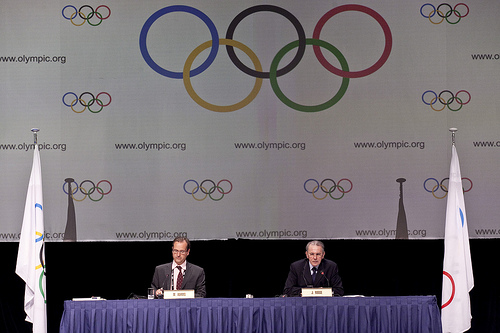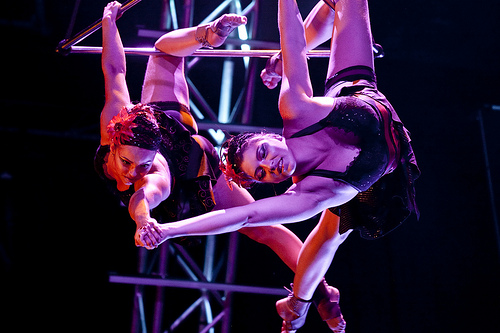
The International Olympic Committee (IOC) announced some big news this past week, first with selecting the Summer Olympic Games of 2020 to be held in Tokyo, Japan.
Secondly, was the news that wrestling would be added back in the same year, beating out baseball/softball and squash. For those of us who have been following the IOC and their somewhat out-of-touch decision-making, with the addition of wrestling back into the Games, skateboarding, which the IOC actually doesn’t call “skateboarding” but rather clouds it under the misnomer umbrella of “roller sports,” have again been sidelined and are even further away than baseball/softball and apparently, squash.
First, the news about Tokyo: The IOC awarded Tokyo for the 2020 Games over other candidate cities including Madrid and Istanbul after two rounds of voting during the 125th Session in Buenos Aires.
Tokyo received 60 votes to Istanbul’s 36 in the final round, with Madrid having been eliminated in the first round after losing a tie-breaker with Istanbul. Tokyo, which also bid for the 2016 Olympic Games, previously hosted the Games in 1964.
“Congratulations to the city of Tokyo on its election as host of the 2020 Olympic Games,” said IOC President Jacques Rogge, whose 12-year term in office comes to an end on 10 September. “Tokyo presented a very strong technical bid from the outset – and it needed to in competition with two such high-calibre bids from Istanbul and Madrid. All three cities were capable of staging excellent Games in 2020, but in the end it was Tokyo’s bid that resonated the most with the IOC membership, inviting us to “discover tomorrow” by delivering a well-organized and safe Games that will reinforce the Olympic values while demonstrating the benefits of sport to a new generation.”
While this is obviously great news for Tokyo, some athletes and sponsors have already expressed concern over whether or not the city is prepared for such an event due to the on-going aftermath of the Fukushima radiation leaks. Tokyo is desperately trying to maintain its status as a global platform for international commerce and tourism, but there is ongoing speculation that the problems the country still faces are being masked by the government.

Meanwhile, after much strife over the fact that wrestling (and baseball/softball) were eliminated from the Olympic Games in 2012, apparently the IOC has deemed wrestling as a necessary sport to be brought back, but not until 2020. Wrestling will also be in the Olympics for 2024.
The Federation of Associated Wrestling Styles (FILA) made a presentation to the Session, along with the International Federations of baseball/softball (WBSC) and squash (WSF), all shortlisted by the IOC Executive Board in May following an extensive evaluation by the Olympic Programme Commission. The IOC members voted for wrestling with a majority of votes cast in the first round.
“I would like to offer my congratulations to the International Federation of Associated Wrestling Styles,” said IOC President Jacques Rogge. “Wrestling has shown great passion and resilience in the last few months. They have taken a number of steps to modernize and improve their sport, including the addition of more women and athletes in decision-making positions; rule changes to make the sport more exciting and easy to understand; and an increase in the number of women’s competitions. We are pleased with their reaction and happy to have wrestling on the Olympic programme in 2020 and 2024.”
In 2002, the IOC first started to cap the number of sports in the Olympics in order to control costs. It was decided that 28 sports would be in the Olympics for approximately 300 events. This is also when they began a systematic review of the Olympic Programme to be conducted after every edition of the Games to provide regular rejuvenation of the Games while maintaining continuity and consistency.
The odd part of this review however was that many sports, which are more relevant to today’s youth culture, continued to be overlooked, in particular skateboarding, even though the IOC continues to claim it is trying to become more relevant with today’s marketplace. But with the new shortlist of sports including wrestling, baseball/softball, and squash making the cut for 2020, this pushed roller sports back yet again for even being considered.
In 2007, the IOC decided that a core group of sports would comprise the Olympics of a max of 25 sports. What got added for 2016 were golf and rugby sevens—two sports that have little to do with where youth culture is headed.
The other unfortunate situation is that baseball/softball were dropped and as of 2020 and 2024, will not be in the Olympic Games in the near future.


